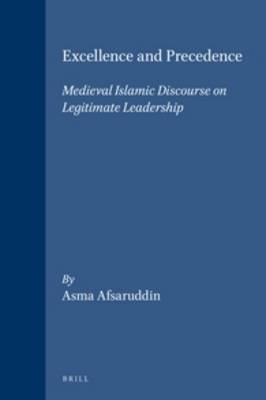Islamic History and Civilization
1 primary work
Book 36
This volume focuses on how legitimate leadership came to be defined in the formative period of Islam in terms of two key Qur'anic concepts: moral excellence (fad l/fad ila) and precedence (sabiqa). These two concepts undergirded a specific discourse on leadership which developed in the first century of Islam. This discourse is reconstructed through careful scrutiny of the manaqib literature in particular, which contains detailed accounts of the excellences attributed to the Rashidun caliphs. This book stresses that all early factions, including the proto-Shi'a, subscribed to the Qur'anically-mandated vision of a righteous polity guided by its most morally excellent members. Such a conclusion forces us to rethink the nature of leadership in the earliest period and reconsider the criteria invoked to establish its legitimacy.
